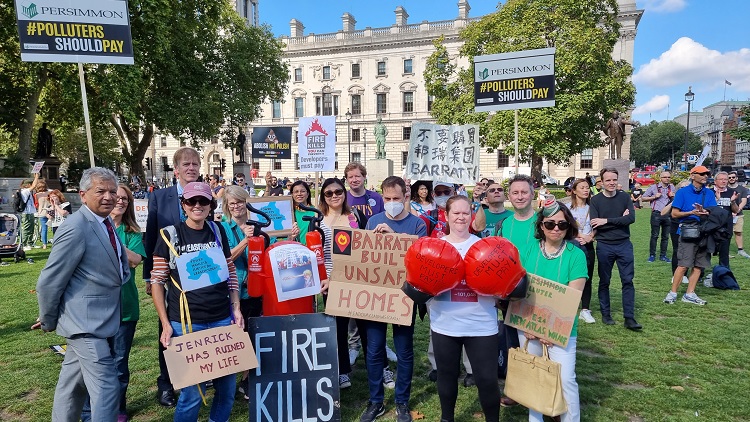Under commonhold, every flat owner in a building becomes part of a commonhold association, with the ability to run the building as an association or appoint a managing agent. Commonholders can vote on a budget for works, and fire and hire a managing agent – all without ground rent or the threat of forfeiture.
On Monday (3 March) Labour laid out plans to “reinvigorate” commonhold, allowing shared ownership properties to be part of a commonhold, and a pathway to banning new leasehold flats. The government said its wider agenda of reforms were needed to finally make good on years of promises to end the leasehold system.
“It’s good news but it actually needs to happen as well. Creating a two-tier system is terrible for us,” said Stephen Squires, who lives in a leasehold flat in Manchester where service charges are increasing and insurance companies and managing agents skim off commission on buildings insurance.
“We will live in a leaseholder apartment with ground rent and a lease while newer properties are commonhold with no ground rent.”
Labour’s latest announcement follows in a long line of promises made on leasehold. The Conservatives promised leasehold reform in their 2019 manifesto, including a ban on new leasehold homes, and in 2023 then-housing secretary Michael Gove said the government planned to scrap leasehold altogether by the end of 2023.
In April 2024, as the general election grew closer, Labour dropped its own promise to abolish leasehold in the first 100 days of government. Its manifesto simply pledged to “finally bring the feudal leasehold system to an end”, but did not give a firm date.
Advertising helps fund Big Issue’s mission to end poverty
Since entering office, Starmer’s government has gradually outlined its plans, and this week’s announcement puts more meat on the bones. Ministers blamed rushed Tory laws for the delays and said they will publish a draft leasehold and commonhold reform bill in the second half of 2025.
Sebastian O’Kelly, of the Leasehold Knowledge Partnership, said the current system means flats are sold as long tenancies where freeholders have an income stream on someone else’s home – which “invariably” leads to abuse.
“As well as introducing commonhold as the end game result, the government is stripping out the income streams and privileged position of landlords in the leasehold system,” said O’Kelly.
“There’s a lot of lobbying from landlords saying it will create a two-tier system,” he added. “Of course commonhold will be taken up by more affluent and informed sites first and then spread further afield. In Australia it took some decades for commonhold to become dominant. But leasehold is familiar and it will take a long time before it becomes unattractive.”
Labour has promised 1.5 million new homes will be built before the next general election. Were these new homes to follow existing ratios – where 19% of homes are leasehold – it would result in a total of 285,000 new leasehold homes, or a 6% increase in the current total.
Changes for existing leaseholders are vital to ensure the victims of the building safety crisis do not face further life-changing costs, said Giles Grove, a spokesperson for the End Our Cladding Scandal campaign.
Advertising helps fund Big Issue’s mission to end poverty
“Leaseholders affected by the building safety crisis often find that their nightmare is compounded, and sometimes made inescapable, due to other leasehold issues that make it impossible to sell their property, such as escalating ground rents or opaque and excessive service charges which are difficult to challenge without the risk of incurring their freeholder’s legal costs,” said Grover.
“The ambition to phase out leasehold and replace it with commonhold is welcome, although we still need to see the details behind the proposals. It would mean that future homeowners have more control over their own homes, which is a start – but the government must go further to help millions of existing leaseholders in the meantime so that they are not left behind.”
Do you have a story to tell or opinions to share about this? Get in touch and tell us more. Big Issue exists to give homeless and marginalised people the opportunity to earn an income. To support our work buy a copy of the magazine or get the app from the App Store or Google Play.






